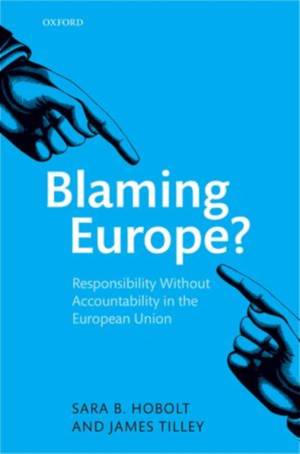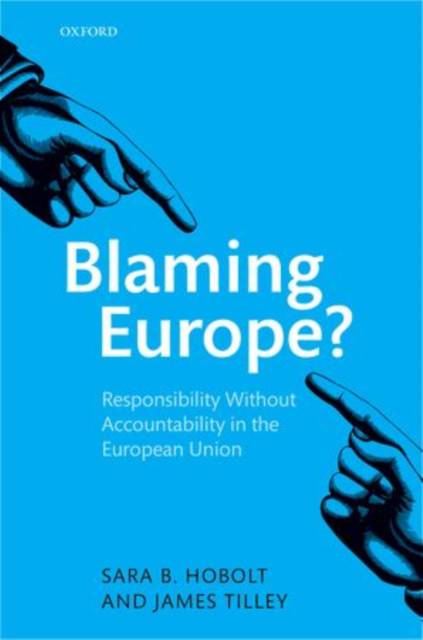
- Afhalen na 1 uur in een winkel met voorraad
- Gratis thuislevering in België vanaf € 30
- Ruim aanbod met 7 miljoen producten
- Afhalen na 1 uur in een winkel met voorraad
- Gratis thuislevering in België vanaf € 30
- Ruim aanbod met 7 miljoen producten
Blaming Europe?
Responsibility Without Accountability in the European Union
Sara B Hobolt, James Tilley
Hardcover | Engels
€ 233,95
+ 467 punten
Omschrijving
A key component of democratic accountability is that citizens understand 'who is to blame'. Nonetheless, little is known about how citizens attribute responsibility in the European Union or how those perceptions of responsibility matter. This book presents the first comprehensive account of how citizens assign blame to the EU, how politicians and the media attempt to shift blame and finally, how it matters for electoral democracy. Based on rich and unique data sources, Blaming Europe? sheds light on all three aspects of responsibility in the EU. First, it shows that while institutional differences between countries shape citizen judgements of EU responsibility, those judgements are also highly determined by pre-existing attitudes towards the EU. Second, it demonstrates that neither politicians nor the media assign much blame to the EU. Third, it establishes that regardless of whether voters are capable of accurately assigning responsibility, they are not able to hold their EU representatives to account via the ballot box in European elections due to the lack of an identifiable 'European government' to reward or punish. As a consequence, when citizens hold the EU responsible for poor performance, but are unable to sanction an EU incumbent, they lose trust in the EU as a whole instead. In conclusion, it argues that this 'accountability deficit' has significant implications for the future of the European Union.
Specificaties
Betrokkenen
- Auteur(s):
- Uitgeverij:
Inhoud
- Aantal bladzijden:
- 208
- Taal:
- Engels
Eigenschappen
- Productcode (EAN):
- 9780199665686
- Verschijningsdatum:
- 15/04/2014
- Uitvoering:
- Hardcover
- Formaat:
- Genaaid
- Afmetingen:
- 157 mm x 236 mm
- Gewicht:
- 453 g

Alleen bij Standaard Boekhandel
+ 467 punten op je klantenkaart van Standaard Boekhandel
Beoordelingen
We publiceren alleen reviews die voldoen aan de voorwaarden voor reviews. Bekijk onze voorwaarden voor reviews.









